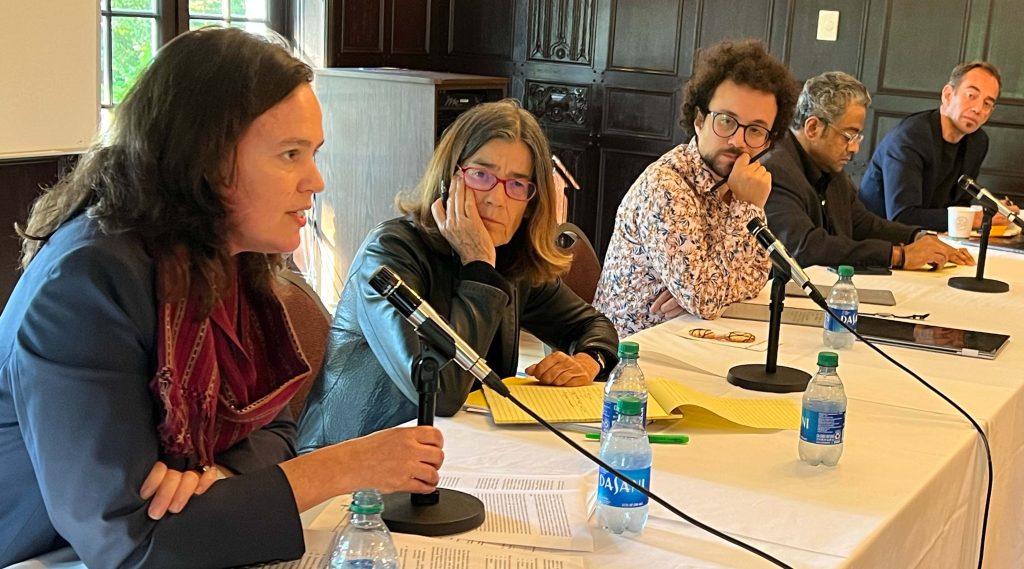The Boston College Center for Human Rights and International Justice sponsored a panel titled “The Plural Worlds of Economic and Social Rights” on October 2. The event was organized to celebrate a major new publication in human rights, the “Oxford Handbook of Economic and Social Rights,” and was attended by each of the editors of that project, and three invited guests in the field.
The editors, Katharine Young, associate dean for faculty and global programs and professor at BC Law, and Malcolm Langford, professor of public law at the University of Oslo and director of the Centre on Experiential Legal Learning, presented some key findings from the forthcoming publication, which collects over 50 original entries from historians, philosophers, lawyers and social scientists, who have studied how certain forms of social protection have evolved over time.
Young began by describing the “vibrant and heterogenous” study of economic and social rights, which undergirds a focus on such vital interests as the right to housing, gender justice, climate change and the just transition, law and technology, and a range of other contemporary issues. In the handbook, Young and Langford pursued an interdisciplinary study, connecting a range of scholars from humanities and the social science, as well as legal scholars engaged in comparative constitutional law, international human rights law, and other fields. The goal of the handbook, as Young explained, is to “shift the focus” of these fundamental rights beyond its traditional framing in either one reading of international human rights treaties, or in welfare state studies settings.
Langford continued in a similar vein, emphasizing how the handbook moves away from what he referred to as a simplistic “big bang theory” of human rights. He highlighted how competing interests present a broader “ontological challenge” of understanding what humans really value.
The handbook prompts a necessary “entrenching” and “contextualizing” of rights issues in larger political concepts, like development and political legitimacy.
Balakrishnan Rajagopal, MIT professor and UN special rapporteur on the Right to Adequate Housing
The commentary portion began with panelist Balakrishnan Rajagopal, professor of law and development at MIT and the UN special rapporteur on the Right to Adequate Housing. According to Rajagopal, the handbook comes at a critical point where economic and social rights are “more mainstream than ever.” As an international lawyer and UN representative, Rajagopal said the handbook prompts a necessary “entrenching” and “contextualizing” of rights issues in larger political concepts, like development and political legitimacy.
Sam Bookman, an SJD candidate at Harvard Law School, followed by examining one of the broader concepts that are interrogated in the handbook: the environment. He acknowledged the uneasy relationship between economic and social rights and climate action. Analyzing a few articles from the handbook, Bookman underlined the effort by environmental advocates to remedy that relationship, making environmentalism a critical component of the human rights project. In environmental litigation specifically, he said, the role of courts often hinges “more on the political impacts of their decisions” than the decisions themselves.
The final speaker, Lucie White, Louis A. Horvitz Professor of Law at Harvard Law School, explored the impacts from the lens of social movements. White, who leads Harvard Law’s Ghana Project, celebrated the range of subjects canvased in the handbook, but sought to center a different subject: that of debt. She described the crippling effects of “gouging, predatory debt” on protecting human rights in Ghana, giving examples from the endpoints reached in advocacy around the right to education collapsing on this question. Overall, she concurred with the editors’ belief that human rights solutions must be collaborative.
The panelists concluded that the handbook’s unique approach pushes for collaboration, which helps to ensure a more inclusive future for human rights in the years to come.


